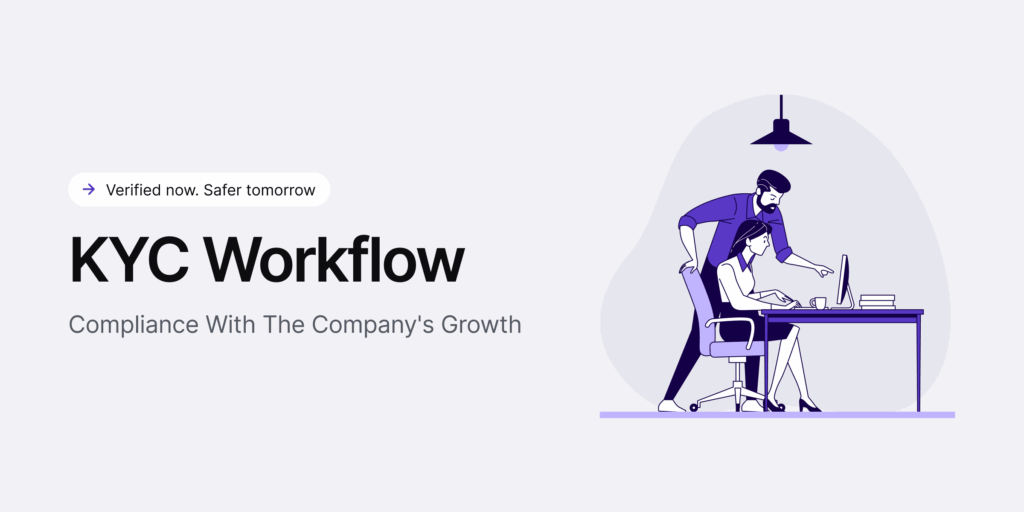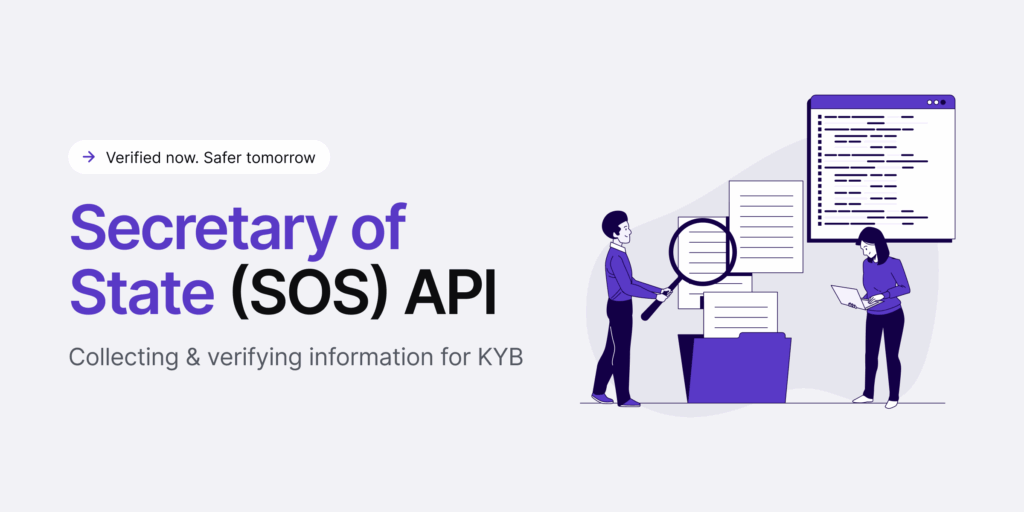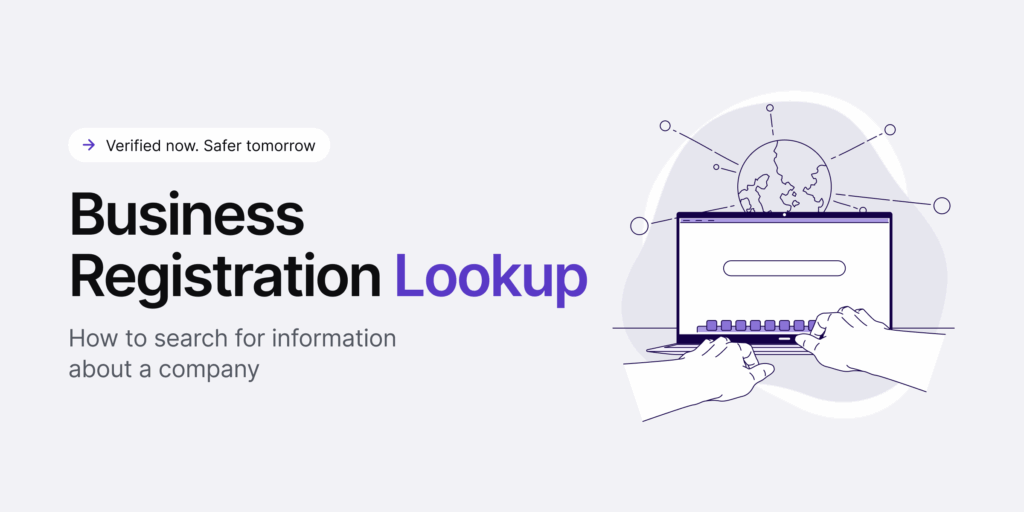A data-driven process that defines how businesses manage risk, build trust, and stay compliant in this world is exactly what we call corporate due diligence.
If you are a startup seeking funding or an enterprise forming strategic partnerships, it does not matter; due diligence is here to help you stay informed and ready to make a decision.
But in today’s hyper-connected global economy, traditional methods are no longer the choice, as the basic PDFs and spreadsheets can not keep pace with real-time threats, changing regulations, and evolving risk profiles.
Corporate due diligence in 2025 is faster, deeper, and smarter – and businesses that praise modern practices will gain a competitive edge and reduce risk.
What Is Corporate Due Diligence?
Corporate due diligence refers to the investigation and assessment of a company or individual before entering into a business relationship, mainly through investment or partnership.
Traditionally, due diligence covers areas such as:
- Legal and regulatory compliance
- Financial statements and liabilities
- Operational capabilities and infrastructure
- Reputation and management team
- Risk exposure, including sanctions or litigation
But in 2025, everything is expanding. Businesses must now also assess environmental, social, and governance (ESG) practices, cybersecurity, data protection measures, and beneficial ownership.
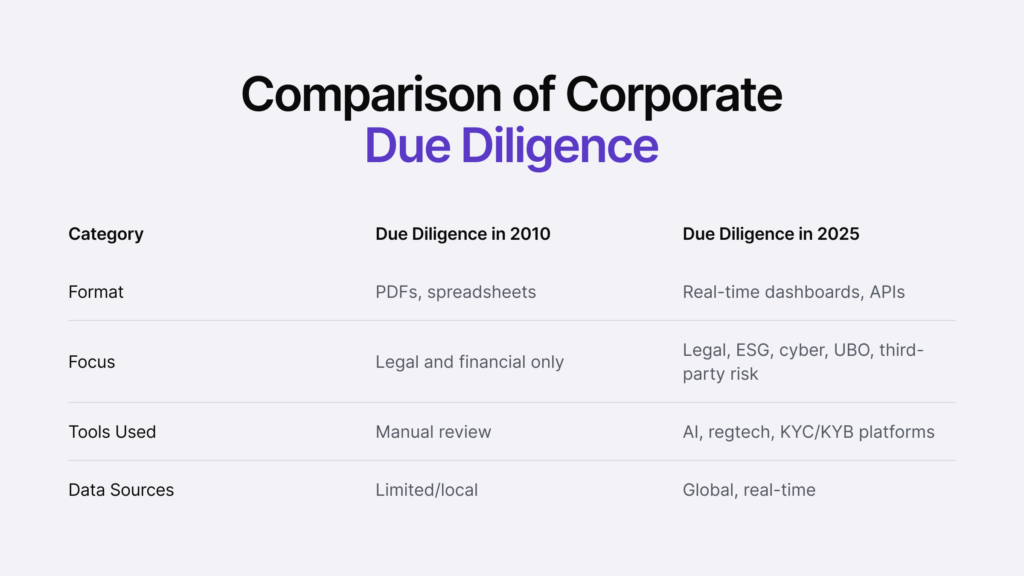
The Importance
Investors and customers expect more transparency, accountability, and ethical standards from the businesses they engage with. Here is why due diligence is now an important function:
- Global Regulations
With the EU’s Corporate Sustainability Reporting Directive (CSRD), anti-money laundering (AML) rules, and KYC/KYB mandates, regulators are demanding deeper checks on counterparties. Businesses must now demonstrate compliance in their operations and across their entire supply chains.
- Reputation Risks Spread Fast
In the social media age, reputational damage can spread globally in minutes. Collaborating with a sanctioned or financially unstable partner can quickly harm your credibility.
- Supply Chain and Third-Party Risk Is Rising
From ransomware attacks on suppliers to legal issues with offshore partners, third-party risk has never been higher. Due diligence now requires a broader view across all entities you rely on.
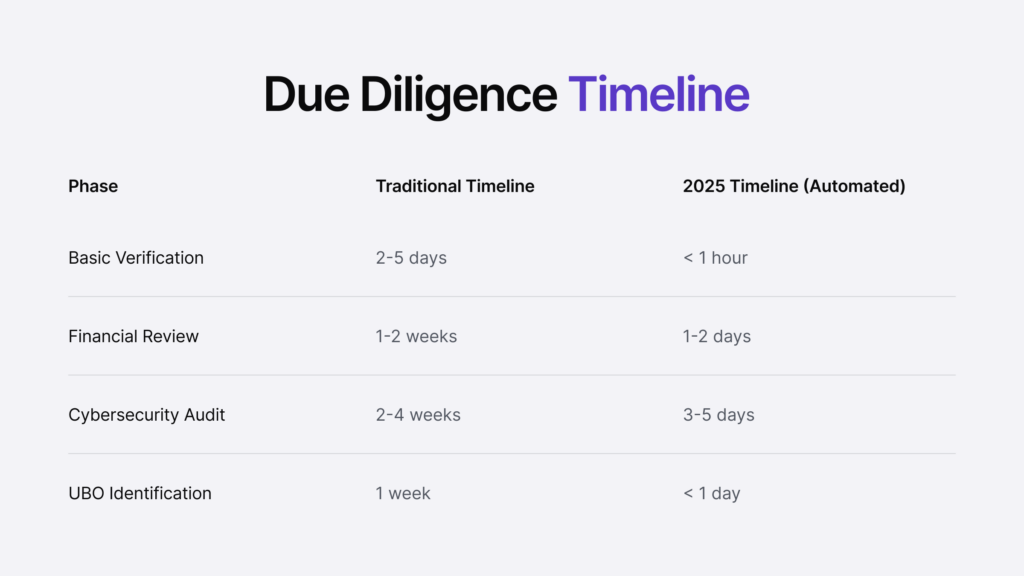
The Components of a Modern Due Diligence Process
Let’s break down what corporate due diligence looks like when done right.
- Identity and Legal Verification
Start with confirming the entity exists, is legally registered, and operates under the claimed structure. This includes:
- Business registration and incorporation documents
- Company type, jurisdiction, and registration number
- Confirmation of good legal standing
- Ultimate Beneficial Ownership (UBO) data
- Sanctions and watchlist screening (OFAC, UN, EU)
Digital Know Your Business (KYB) tools are now essential for automating this process.
Related:
- Financial Due Diligence
Understanding a company’s financial health is more than just reviewing PDFs:
- Real-time access to audited financials and balance sheets
- Review of outstanding liabilities and contingent risks
- Cash flow trends and revenue breakdowns
- Tax compliance records
- Debt structures and funding sources
Financial due diligence helps identify risks before contracts are signed.
- Operational and Infrastructure Review
This step assesses whether the company can fulfill its obligations:
- Supply chain visibility
- Technology and software infrastructure
- HR and workforce policies
- Information security and data privacy protocols
- Disaster recovery and business continuity plans
Investors and partners want to know: Can this business scale, and learn from the crisis if one occurs?
- Compliance and Regulatory Review
Legal compliance is a baseline. This review checks for:
- Licensing and industry-specific certifications
- Anti-corruption practices (e.g., FCPA compliance)
- AML/KYC adherence
- GDPR or data privacy regulation alignment
- Pending investigations, lawsuits, or enforcement actions
Automated compliance platforms help scan for red flags across countries.
- Cybersecurity and Data Protection
With digital threats constantly evolving, cybersecurity diligence is non-negotiable:
- Security audits and penetration test reports
- Breach history and incident response logs
- Encryption, access control, and user security policies
- Data governance frameworks
- Compliance with standards like ISO 27001 or SOC 2
Cyber risk is business risk. Ignoring this area can be a costly oversight.
- ESG and Ethics Assessment
Investors, partners, and regulators now demand an ethical footprint. This involves:
- Environmental impact assessments and emissions data
- Workforce diversity and labor practices
- Governance structures and executive accountability
- Ethical sourcing and supply chain transparency
Affecting valuation and partnership decisions.
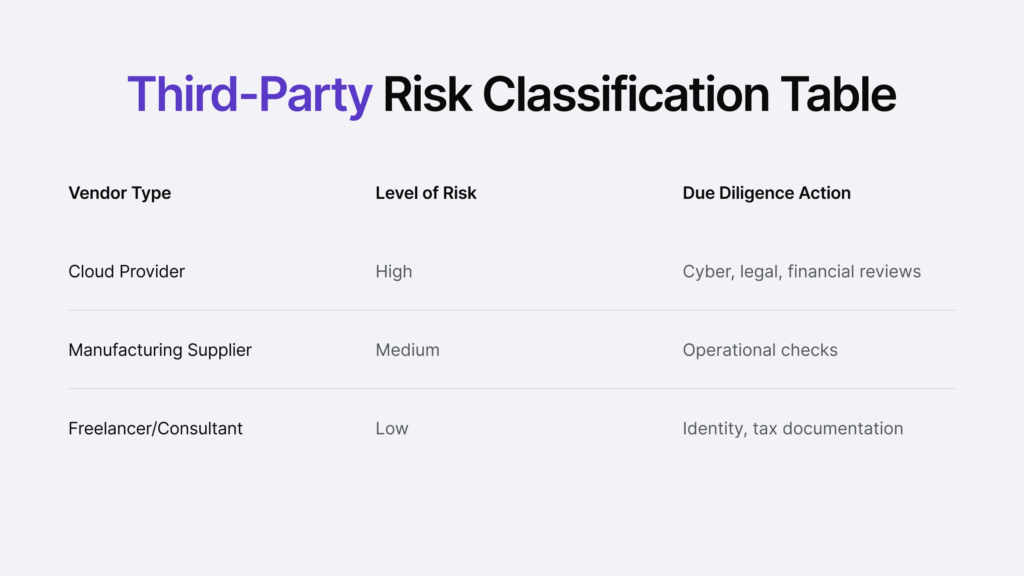
Tools and Technologies Powering Due Diligence
Legacy spreadsheets and offline audits can not keep pace with today’s requirements; on the other hand, modern due diligence relies on digital tools that offer automation:
- AI-powered risk scoring platforms
Multiple data points have assigned risk levels to potential partners. - Automated KYB/KYC APIs
Mainly used for verifying businesses across countries, as well as individuals. - Regtech and compliance software
Platforms always monitor regulatory changes. - Secure data rooms and collaboration hubs
Having secure due diligence exchanges with audits.
Businesses can reduce manual effort, with increased accuracy and defensibility, with these technologies.
Common Mistakes
Many organizations still make avoidable errors that create exposure:
- Treating due diligence as a one-time event rather than a continuous process.
- Ignoring ESG or reputational risk, which can affect compliance.
- Overlooking cybersecurity, assuming it is “not relevant” until a breach happens.
- Using outdated tools or relying on non-verified data sources.
Due diligence must be supported by validated intelligence.
The Near-Future of Corporate Due Diligence
As technology, regulation, and global risks evolve, the future of due diligence will be:
- Real-time and continuous: Risk profiles change daily.
- AI-assisted: Machine learning will spot patterns and risks humans might miss.
- Collaborative: More businesses will demand transparency from each other.
- Workflows: Due diligence will not be a separate step, it will live within CRMs, contract tools, and onboarding platforms.
- Global: With remote work and cross-border commerce the norm, businesses must think beyond local places.
Conclusion
Corporate due diligence in 2025 is more than just a compliance requirement – it is a strategic tool. Businesses are better positioned to grow and adapt in an increasingly complex world if they implement this tool in their businesses.
With the right tools, partners, and mindset, due diligence becomes a risk control and a competitive advantage.

